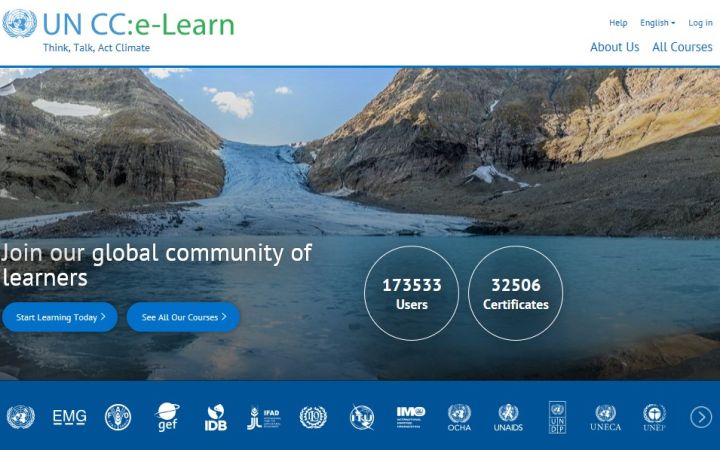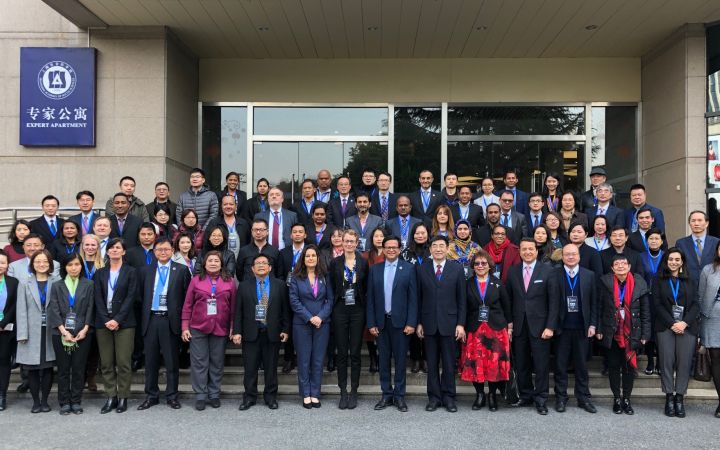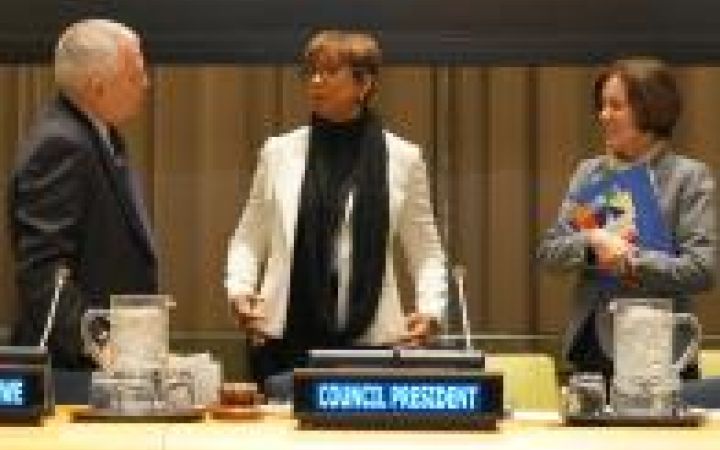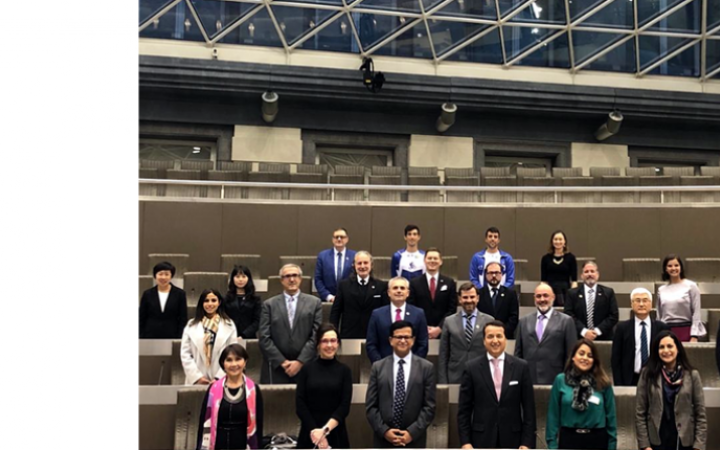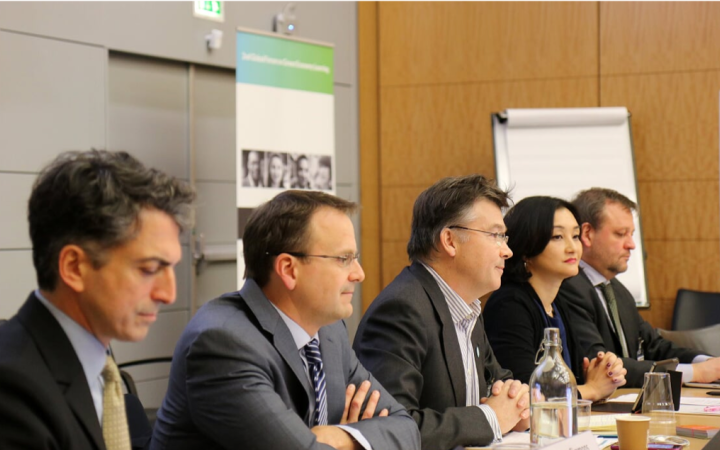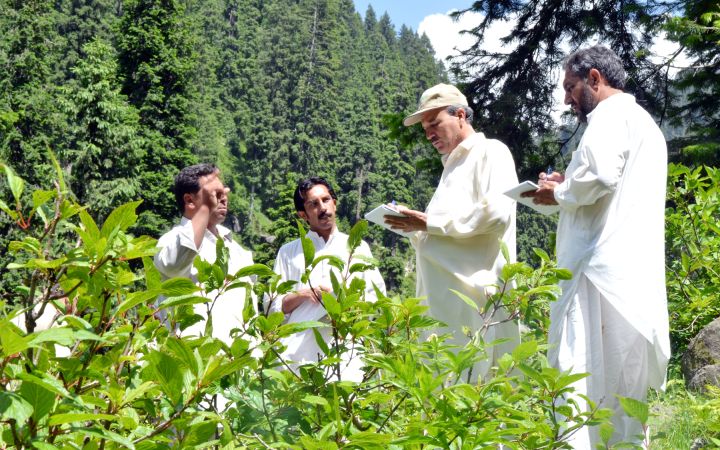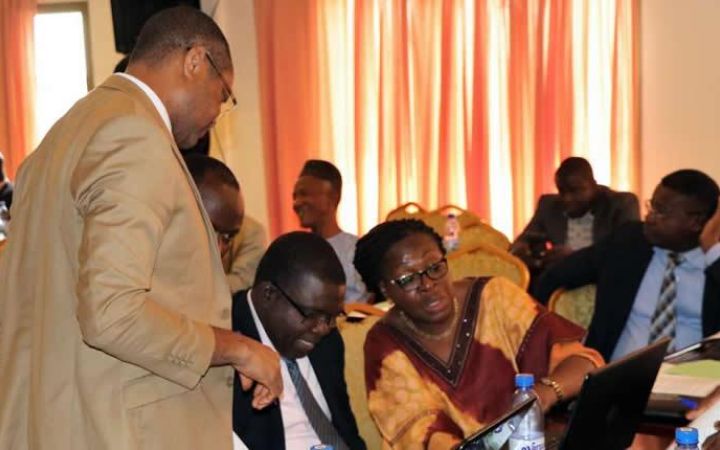Displaying 151 - 160 of 183
The UN CC:e-Learn platform has just undergone a complete makeover. The platform, which was launched in 2014, brings a set of new features to its over 170,000 registered users.
23 - 24 January 2019, Shanghai, People’s Republic of China – UNITAR, in collaboration with the United Nations Department of Economic and Social Affairs (UN DESA), the United Nations Economic and Social Commission for Asia and the Pacific (UN ESCAP), and the Shanghai Academy of Social Sciences (SASS) successfully held the Learning Conference “Implementing the 2030 Agenda in the Asia-Pacific Region” in Shanghai, People’s Republic of China, on the 23rd and 24th of January 2019. The conference was attended by more than 95 participants, including government officials leading the SDGs process in their countries, diplomats, international civil servants as well as university professors. 23 countries were represented in this event, with many participants coming from Small Island Developing States (SIDS), thus, providing different perspectives and experiences regarding the implementation of the 2030 Agenda.
23 January 2018, New York City, U.S.A – The United Nations Economic and Social Council (ECOSOC), the United Nations Institute of Training and Research (UNITAR) New York Office and the Department of Economic and Social Affairs (DESA) have jointly hosted a one-day orientation course on the Economic and Social Council for the Members of the Council. The event was hosted in the United Nations Headquarters in New York City.
13 December 2018, Geneva, Switzerland – As part of their journey around the world to promote the UN 2030 Agenda for Sustainable Development, Mr. Juan Pablo Caroli and Mr. Nicolas Caroli visited Geneva, Switzerland and the United Nations European Headquarters. During their visit, the Caroli brothers toured UNITAR and the Palais des Nations, meeting with UN officials, including Ms. Alessandra Vellucci, Director of the UN Information Service in Geneva, to spread the word about their unique project.
19-21 November 2018, Brussels, Belgium – UNITAR hosted the Annual Meeting of its Network of Affiliated International Training Centres for Authorities and Leaders (CIFAL) in Brussels and in Antwerp, Belgium. The Directors of 15 CIFAL Centres gathered for three days to review its performance in 2018, discuss opportunities for collaboration, exchange knowledge and expertise, and to develop the training calendar for 2019.
17 December, Geneva, Switzerland – A landmark report providing the first detailed account of the devastating damage to the World Heritage Property of the Ancient City of Aleppo in the wake of years of armed conflict has been published by the United Nations Institute for Training and Research (UNITAR) and UNESCO.
How can countries build up a critical mass of professionals that can put in place the right policies and incentives for a transition to an inclusive green economy?
The course was very helpful for us, to calculate pollutants from landfills and other sources.
Being global citizens of the planet earth, let us join hand in hand to work individually and collectively to fight for global climate change issues. We must act today instead of thinking to do it tomorrow.
On 13-15 November 2018, the Togolese Public Administration School (ENA), UNITAR and UNDP held a national workshop aimed at strengthening the capacities of senior civil servants to lead the implementation of the 2030 Agenda and SDGs. This was the first national-level pilot of UNITAR’s toolkit “Policy cycle, integrated approaches and SDGs” targeted towards African Least Developed Countries (LDCs).


